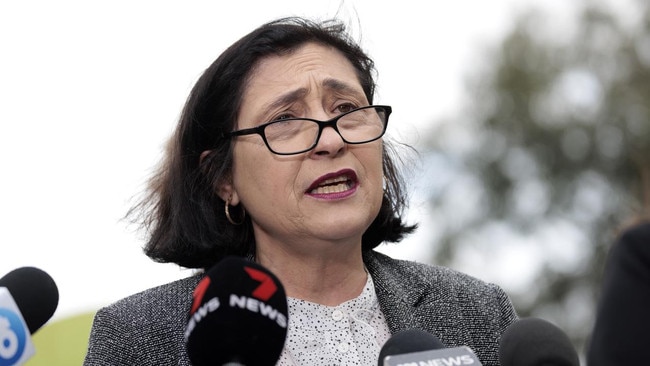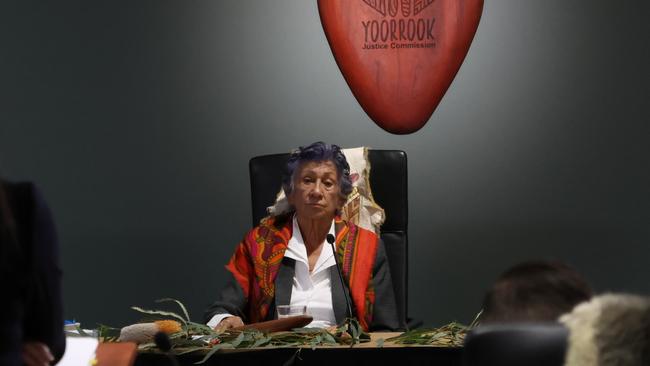Victorian Energy Minister Lily D’Ambrosio flags Indigenous wealth sharing
Victorian Labor is moving to share the wealth of renewable projects and other power infrastructure with the state’s Aboriginal peoples.

Victorian Labor is moving to share the wealth of renewable projects and other power infrastructure with the state’s Aboriginal peoples, as the state’s energy minister claims current gas and resources laws are making “land injustice” worse.
In her evidence to the Yoorrook Justice Commission, Victorian Energy and Resources Minister Lily D’Ambrosio said it was “horrifying” that Indigenous people had been shut out of independence and prosperity.
The truth-telling body heard that Victoria had earned a total of $149.4m in royalties for the extraction of gold, $885.6m for coal and $79.5m for sandstone and gravel between 2010 and 2023, as commissioners pressed the minister on the steps the government had taken to “return” a proportion of wealth.
“My intention is to embed within a critical mineral strategy … the concept of traditional owner benefit sharing – but also, of course, a proper formally recognised set of rules around what does meaningful engagement mean,” Ms D’Ambrosio said.
“We have to acknowledge that … traditional First Peoples cannot possibly be able to secure what self-determination means for them without having an embedded and reliable source of revenue for themselves.
“Either through processes that I hope to deploy through renewable energy processes, what the future might be in mineral extractions, and also ultimately through treaty.”
Ms D’Ambrosio said long-lasting streams of revenue, such as profits derived from renewable energy projects, needed to be codified to properly shift power to traditional owners
“In terms of the potential for wealth sharing, we are very much looking at embedding, in a legal sense, benefit-sharing arrangements from infrastructure projects around transmission infrastructure, but also renewable energy zones and projects that are built,” she said.
“My commitment is to seek to apply the same approach to future extraction of resources.”
Her witness statement provided to the commission acknowledged the state government’s ownership of Victoria’s minerals and petroleum until the resource is extracted and the royalties it receives from it has played a significant role in “perpetuating land injustice against First Peoples”.
She said the truth-telling and treaty process would allow Victoria to “truly reckon with land injustice”.
“I acknowledge that my portfolio has had, and continues to have, a role in the continuation of practices that dispossess First Peoples of their traditional lands, waters, and other natural resources,” the statement reads.
“As a result of that dispossession, the state has upset important natural and spiritual balances in the relationship between First Peoples and Country.”
The truth-telling body probed Ms D’Ambrosio on the state’s offshore wind projects, which has been slammed by some traditional owner groups.
She said in her evidence that those who want to compete in the wind auction process, expected late this year, will have to address “both price and non-price factors” in their proposals.
“In practice, there is likely to be a weighting applied to non-price factors, such as supply chain development, training and ensuring that there are mutual benefits proposed for traditional owners,” the minister said.
“I intend for those involved in this process to invest and partner with traditional owners, to ensure that future generational support for land and sea Country over the lifespan of offshore wind farms.”

To reform the resources sector she also recognised there was room for improvement by both government and resource proponents to balance commercial outcomes with respecting the rights of traditional owners.
“In other parts of Australia, we have seen the long-lasting and irrevocable damage that can be done when there is little to no regard for involving traditional owners in major energy and resources projects.”






